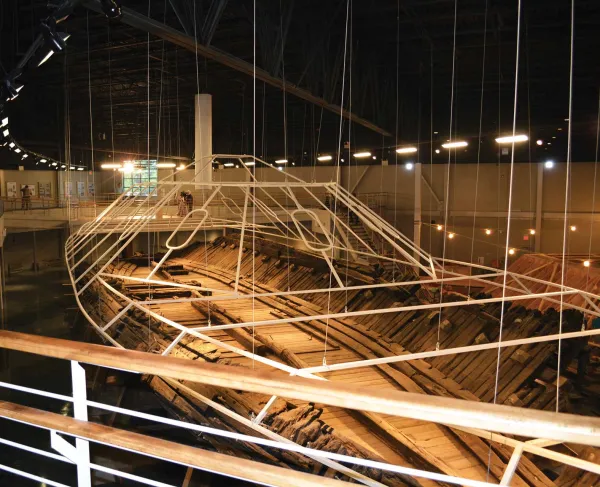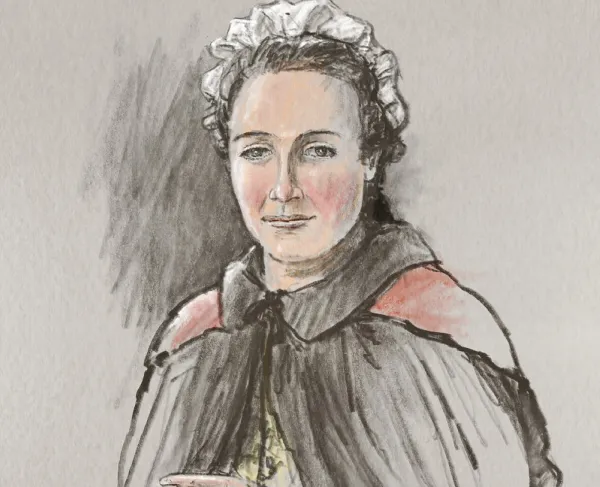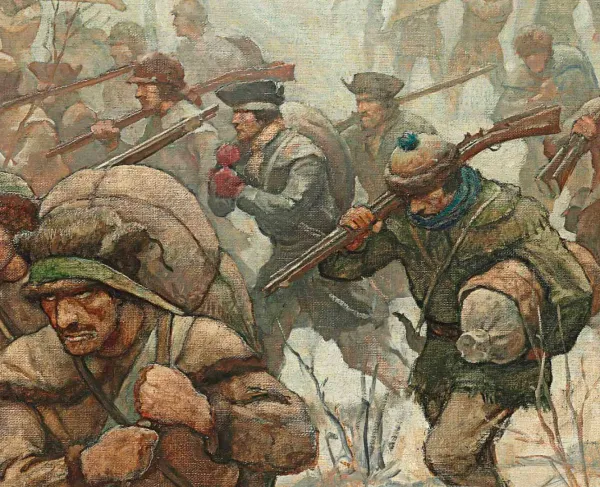Interview with American Battlefield Trust's 2003 Teacher of the Year: Carolyn Ivanoff
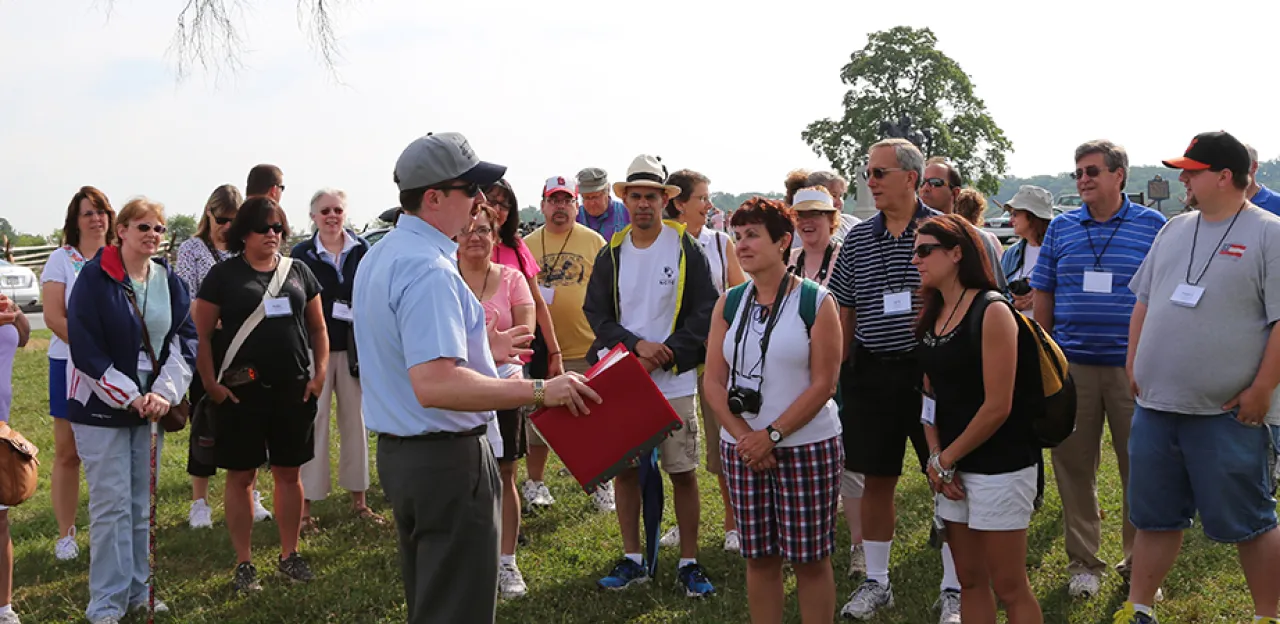
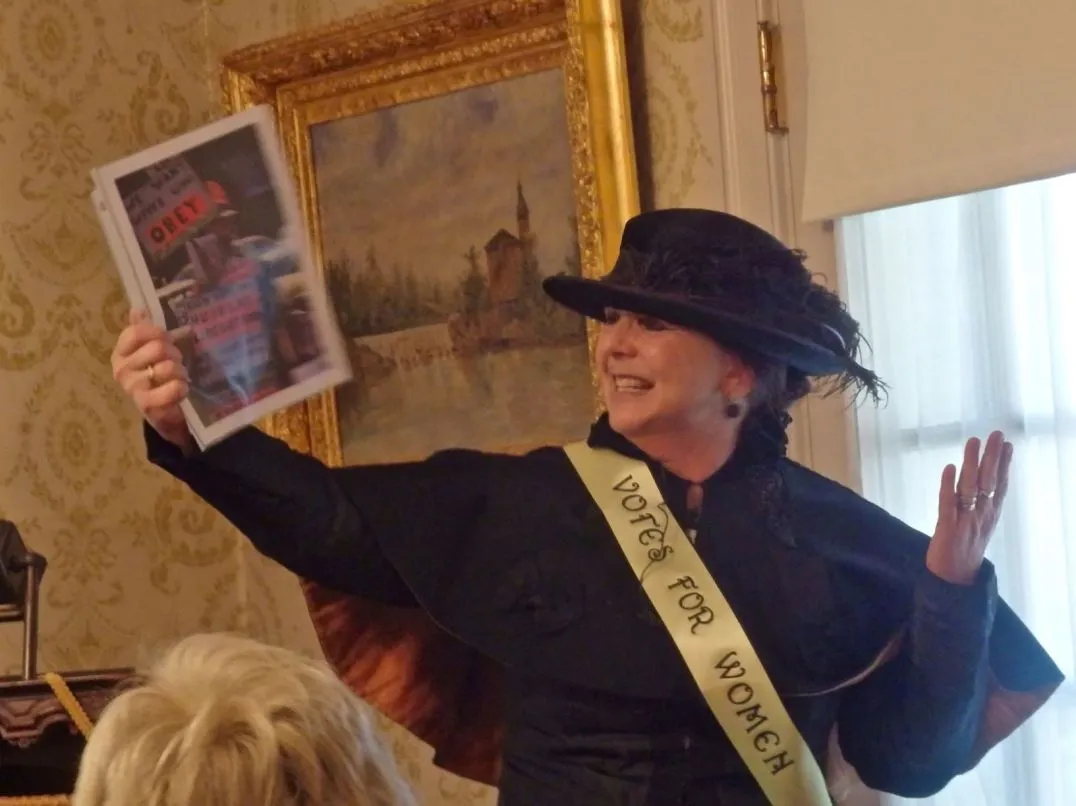
Recently we had a conversation with Carolyn Ivanoff, the assistant principal at Shelton High School in Shelton, Connecticut, to touch base about her experiences with the American Battlefield Trust, personally and professionally. Ivanoff was named the Trust’s Teacher of the Year in 2003, but since then, she has become an administrator, using her knack for history in a different way than she previously had.
Carolyn, who has been working in education for over 30 years, has experience both inside and outside the classroom; she interacts with students, while also helping to create a curriculum for teachers to use inside their classrooms. Ivanoff also has experience working on some special projects, which helped to preserve battlefields and march Civil War history forward.
Read the full interview, edited lightly for clarity and continuity, below:
When were you chosen as the Trust’s Teacher of the Year or Abroe-Carter Award recipient?
I was chosen as teacher of the year for American Battlefield Trust in 2003. At that time, I was the Social Studies Department Chair and I was teaching American History.
Name of the school where you teach:
I teach at Shelton High School in Shelton, Connecticut. I subsequently became an assistant principal at the high school and after a number of years, I was an assistant principal at Shelton Intermediate School, grades 7 and 8. I am currently back as an assistant principal at Shelton High School.
How long have you been teaching?
I have been either teaching or a school administrator for over 30 years.
What got you interested in teaching in the first place?
I always loved history and wanted to share that love with my students. I was especially involved with a lot of local history initiatives and with Civil War history.
What’s your particular passion for the Civil War?
Social history—how Americans like us, citizens who then became civilians in the line of fire, coped with the devastation and tragedy of Civil War, both north and south. I am also embedded in the social, technological and progressive sciences of Civil War Medicine, its advances and how it changed medicine forever in the United States. These topics are still controversial in society; take, for example, the current raging discussion surrounding vaccination, which has direct connections to Civil War medicine. I currently write and speak frequently about these historic social issues. I'm also of the ilk that you cannot understand the current state of our nation today with all its triumphs, tragedies and political tensions if you do not understand the Civil War. It appears we seem to be re-fighting the war and are in a constant state of "Reconstruction" regarding many unsettled issues and questions in our nation today.
Do you have a favorite personal memory related to the Civil War (Revolutionary War/War of 1812)?
As a teacher and re-enactor, I frequently portray historic personalities. I am often Mrs. Madison, and my students sometimes do not recognize me in period dress. Once when Mrs. Madison was lecturing about Andrew Jackson's triumph at the Battle of New Orleans, she declared that Andrew Jackson, in preparation for facing the British, "Threw up a Breastworks." That got their attention!
A whole discussion of military fortification and tactics followed that. It's remarkable and sad the way vocabulary that might have been well understood previously has dissipated along with any common touchstones regarding vocabulary, historical references and people in our common dialogue. This is an issue not just contained to students, but to adults as well. It presents multiple challenges for teachers of history in modern classrooms today.
Why is learning about the Civil War important for students today?
Again, I'm of the ilk that you cannot understand our nation today, and the issues driving it, dividing it and hopefully unifying it without understanding that we are a nation made, as well as saved, by the Civil War.
How easy/hard is it to teach Civil War history in today’s educational environment? Why?
It's difficult. In many states, history has been crowded out by standardized testing especially in the elementary schools where math, reading and science take precedence.
In many American elementary schools, history is simply not taught with any regularity. In our district, the first consistent, daily experience that our students begin to have with history is in the seventh grade. This is the year that it becomes a "class" with a certified social studies/history teacher. Kids usually love their first history class. Teaching Civil War history is always challenging due to timing and any political issues that may often cling to the content. In many high schools, American history is taught as a survey class, and the time allotted to Civil War history may be only a week or two to cover the entire spectrum of the war, it's antecedents and its results.
Many critics of today’s educational system say, “Teachers aren’t teaching history anymore!” How do you respond to that?
Again, making time to teach history is our biggest factor against any consistent, in-depth teaching of history. Our technology-laden society no longer puts a premium on content knowledge, which I see dissipating in education as well as society. Our education system puts a premium on skill-based learning, not content-based. This leads to a conundrum: the more we want kids to understand sources and where we derive information from, the fewer tools they have to evaluate the sources and the content of the information they use to derive conclusions. There seem to be fewer and fewer common touchstones. It's increasingly difficult for our citizens and students to be media savvy. This is a huge issue in our schools as well as in our society.
What are some of the things you do in your classes to teach the Civil War?
I'm no longer in a classroom on a daily basis, but the teachers I supervise and work with often welcome me to their classrooms to work with students. I tell a lot of stories, often using them as models or paradigms about people and events that I hope get students to understand so they can make personal connections with the topics and to think about the issues past and present that affect them. This teaching style has always been rewarding and compelling for my students, as well as for me.
The Civil War Trust expanded its mission to now include the Revolutionary War and the War of 1812. How do those content areas tie into what you do?
Again, most high school history courses are survey courses and the emphasis of the mission on content, events, preservation; many of the teaching tools, materials and support that the American Battlefield Trust offers freely to all teachers is a boon to all of us and our students.
How has the American Battlefield Trust supported you in the classroom?
I have been involved with the Trust through several curriculum cycles. I have attended all of the Teacher Institutes since their inception. I often refer my teachers and students to their resources and have traveled to several of the Institutes with teachers who back to their classrooms, the way I did when I was in the classroom, many wonderful tools that ABT provides.
How has being named “Teacher of the Year” by the Trust helped you?
Being selected as a Teacher of the Year has always been a great source of pride and wonder to me. It has helped give me "street cred" in developing curriculum, numerous programs and presentations that continue to support education for my students and teachers. I am very proud to have been associated with the Trust for all these years and to have participated in so many of its programs and preservation projects with teachers and students.
Since being named “Teacher of the Year,” have you completed any new projects with your students, or are you in the process of completing any special projects?
Though I am no longer in the classroom, I still do quite a bit of programming for local historical societies and the State of Connecticut organizations. I also continue to reenact. I continued to be invited into high school classrooms with the teachers I supervise and work with. I write and lecture frequently.
I firmly believe that education takes place not only in a classroom but in the community and in the historical, hallowed places and ground of our nation.
The most recent project was this past year. I was the project coordinator for our reenacting group, Company F 14th Connecticut, which has supported the Trust with thousands of dollars for preservation; we continue to raise money. We also participate in American Battlefield Trust Park Day at Fort Trumbull with the Coast Guard Academy every year.
We were awarded a Connecticut League of History Organizations Award of Merit for a preservation project at Gettysburg. Company F, 14th Connecticut. Working with the National Park Service and paying all costs, Company F 14th Connecticut refurbished and preserved the 17th Connecticut Flag Pole at Barlow's Knoll.
The flagpole was rededicated with a formal ceremony on July 1, 2018, on the 155th anniversary of the first day's battle. This was a big project and a big deal at Gettysburg National Military Park and recognized by our State of Connecticut League of History Organizations with an Award of Merit. I'm very proud to have been a part of this.
What sort of pitch would you make to fellow educators about the Trust’s Teacher Institute?
Go and attend. You will be amazed, and you will return to your classrooms with many insights, tools for teaching, appreciation for our nation’s history and the desire to share that with your students. In addition, you will leave with many ways and ideas to enrich your classroom. You will also be part of a fabulous, nationwide network of teachers who are the best! Untold rewards and fabulous experiences await first-time attendees, as well as those who continue to attend each and every year!
What advice would you give to a first-year educator?
Love your subject; learn something every day; be passionate and excited to share with your students and your colleagues. You are not alone, although teaching can sometimes be lonely. For me, teaching has been the most rewarding aspect of my life and a wonderful career. I wish the same to all new teachers.
